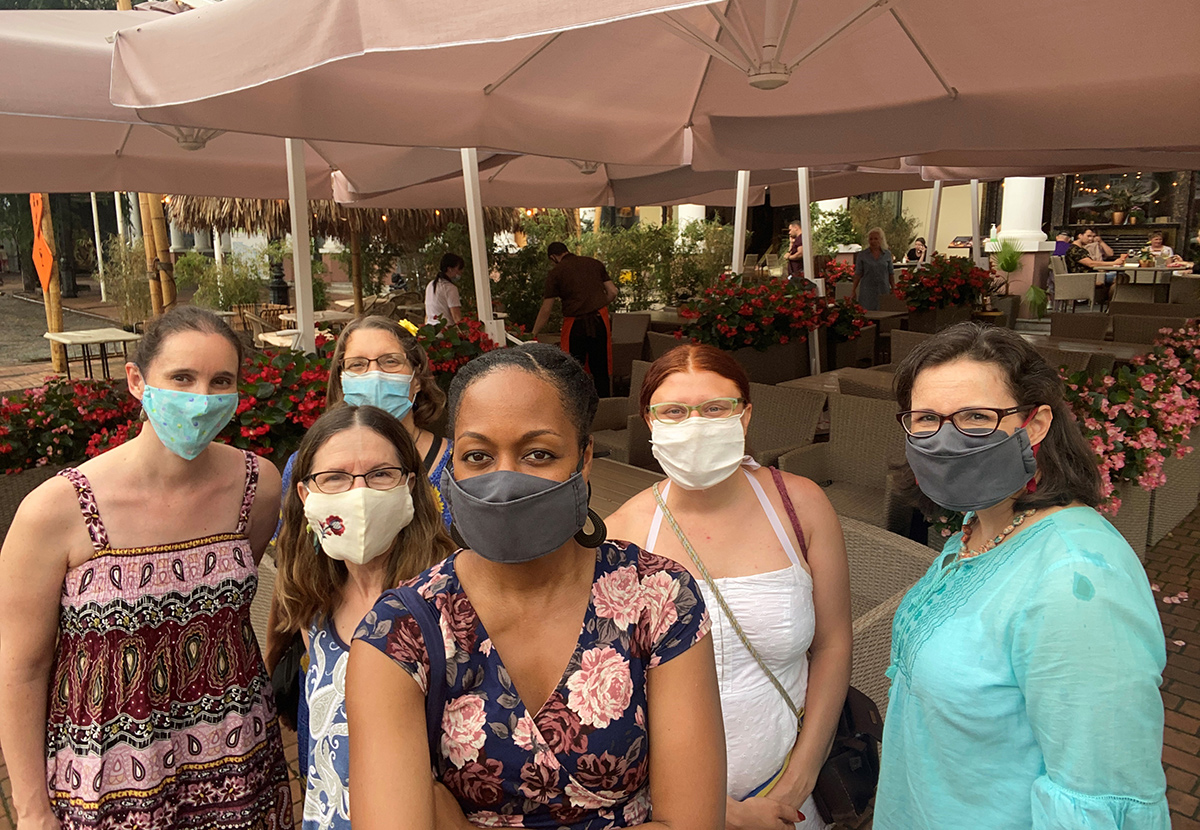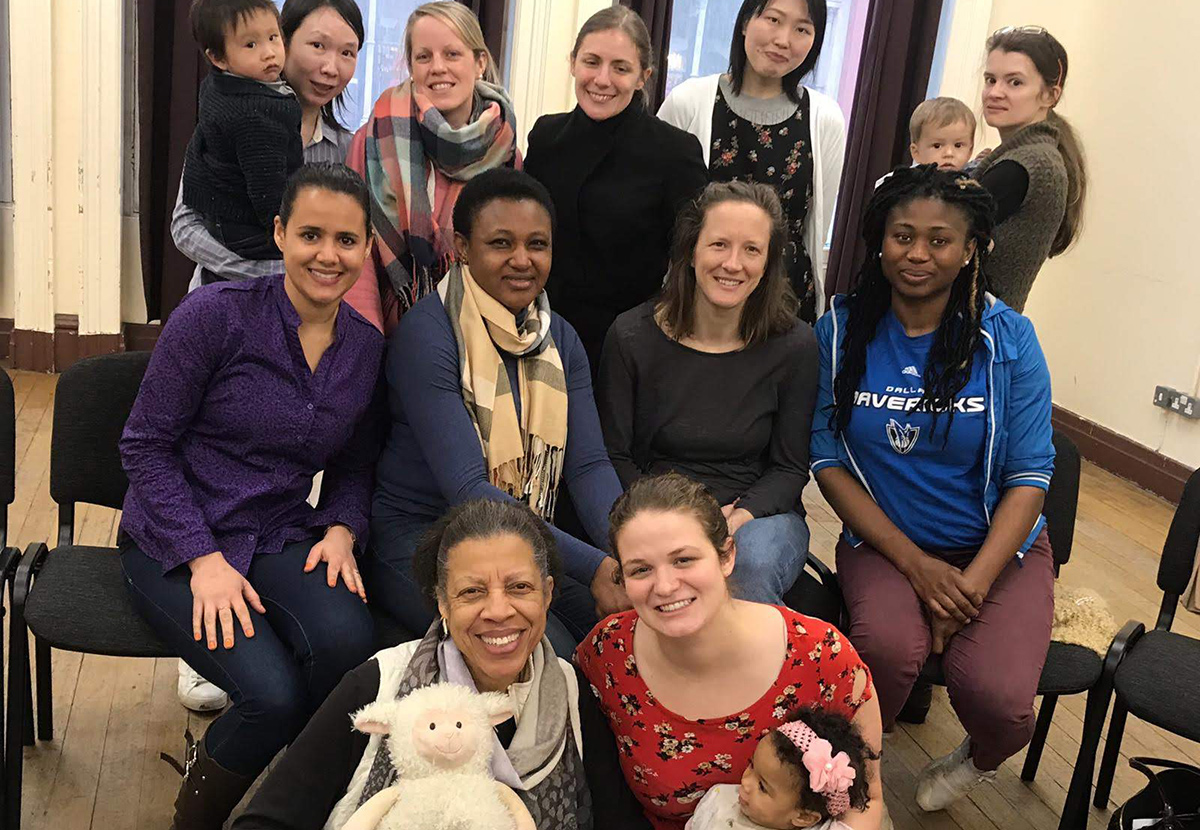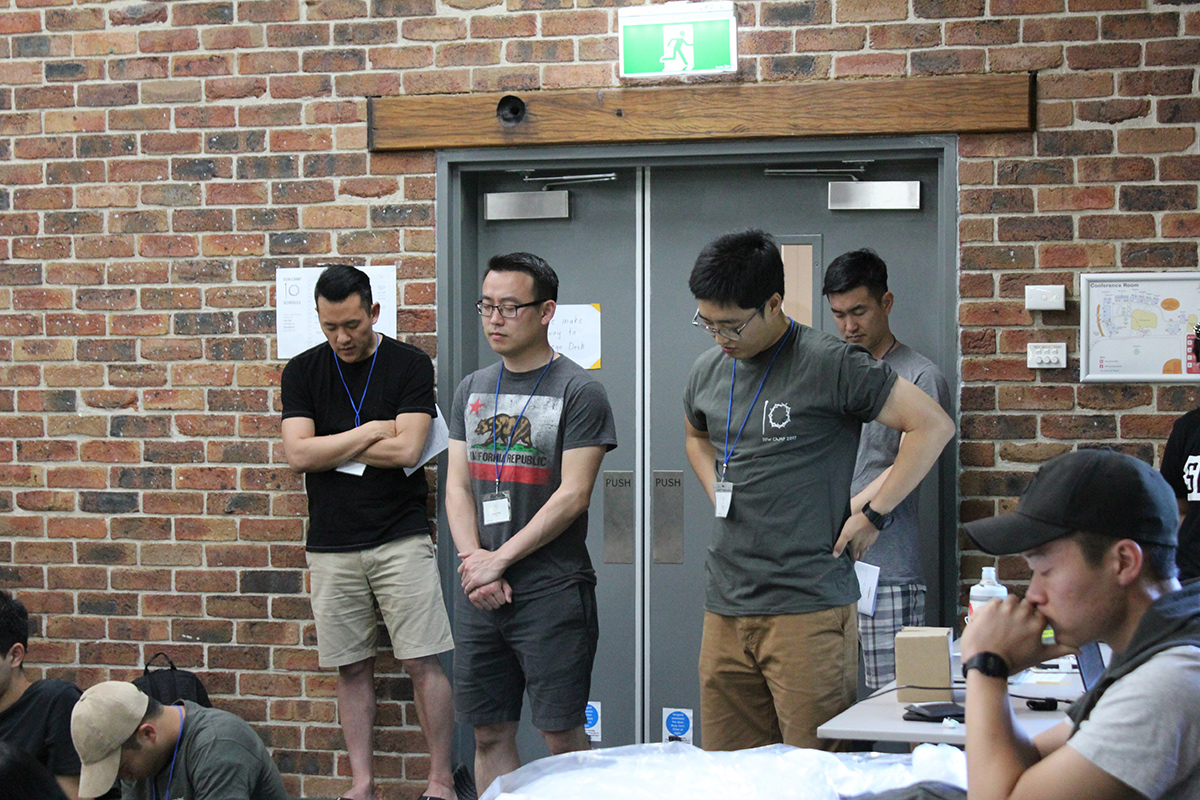What Does Racial Justice Have to Do With Missions?

We interviewed three MTW missionaries of color: Lauren Stovall, Odessa, Ukraine; Barbara Wright, Manchester, England; and David Choi, Sydney, Australia.
MTW: Across the United States, and the entire world, recent violence against Black men and women has sparked sorrow, outrage, and a global conversation about racial justice. How have you been experiencing these events and conversations on the mission field?
Lauren: Being on lockdown in Ukraine, things were already difficult. I live by myself, which is fine because I’m an introvert, but at some point it’s like—I could use people, or a hug. … But then when all of this was happening [it got a lot harder].
Every time somebody gets killed in this way it’s like a hit against your confidence as a Black person because it just reinforces [this lie] that we’re not as important as other people. It’s difficult, because you keep seeing people of color in these positions and [you can’t help but ask,] “Why does this keep happening?”

I think I’m a valuable person and then things like [the death of George Floyd] happen. And you know about the history of our country, how our ancestors were treated as property, as cattle; families ripped apart; and you realize that for some reason people who look like you are [treated as] lesser. And you know that you have parents or grandparents who have dealt with really terrible things, and you know your own family members have had really terrible experiences with police officers. Crazy things happen that shouldn’t happen.
[There’s a lifetime of experiences and perspectives that all pile up,] and that’s what makes this harder—because of all those things.
Barbara:At the church [in England] I’m going to, City Church Manchester, there are two pastors—Matt and Ralph—and I feel that they have their fingers on the pulse of not only the individual but the local body and the body universal. … So they brought the discussion [about racism] to the table via a Zoom conference. There were four of us on a panel: two Black people, one Asian person, and one bi-racial person. We had the opportunity to share our backgrounds, to share our feelings about perceived racism, and to entertain questions. More than 80 people came, so interest was high.

So, [while this violence is horrific], it has also heightened the interest and willingness of people to talk about these issues, and that’s good. … I feel that the conversation is necessary, even though it is often uncomfortable. It has amplified in my mind my perception of my value in Christ, but it has also magnified the fact that we are sinners, that we live in a marred world, that this is not God’s intention, and a lot of what we see is cultural ignorance. God is sovereign, I’m certain of that, and He’s allowed such a time as this.
David: After what happened in America people in Australia said: “But what about the Black lives here—Aboriginal Australians and Torres Strait Islanders?” Police brutality in America helped remind people here about [a similar incident that] happened to an Aboriginal Australian who was imprisoned and died in custody. I forget the exact story, but David Dungay Jr. was being moved to a different cell in prison and was restrained by five officers, sedated, held face down, and then [like with George Floyd], he said he couldn’t breathe and then he passed away.
So that’s been kind of the focal point for a much larger history. … So people here have jumped on the Black lives matter [movement]. … The first protest happened a few weeks ago.
MTW: Are the people in your mission field overseas asking you what is going on in the U.S. related to these issues? If so, what do you tell them?
Lauren: One of my students in my English ministry messaged me about [George Floyd’s death] and said, “This person was a criminal and they deserved to die.” They’re an atheist, so I realized that I couldn’t really talk to them on a Christian level, and that was hard.
I got to the point where I said: “Lord, I know these things are happening, but how can I love in the midst of it? How do I love this person who is saying really offensive things about this very sensitive topic?”
Barbara: Some people here will ask me, but most are expressing sorrow or sympathy. They stop by and say: “I’m so sorry about what I hear is going on in America.”
David: It’s hard. I have to tell them in one sense: “I don’t know [what’s happening]. There’s a lot going on.” … I tell them that there is a complex history, [and that] there is a lot of injustice.
But you know, things like this actually can become gospel talking points, even evangelistically. … I also tell them that, as Christians, we should not be surprised when we see injustice because we know about the Fall—that’s the reality of the world and we should expect to see the effects of the Fall. But, for a Christian, there’s also hope. You get to talk about that fact that you believe you’re made in the image of God, which is why we even bother to seek justice. [Justice is] one of the communicable attributes of God, so we have this natural desire to seek it out.
MTW: What does racial justice have to do with missions?
Lauren: Racial justice sounds like a really big term, but I think it’s really just about loving and caring for your brothers and sisters, their livelihood, and their lives in general. If someone in this population is being killed, and its continuing, and people are hurt about it, not saying: “Well, that’s deserved,” or “Let’s just forget that this happened.” As Christians, we’re called to mourn with one another, to love one another, to carry each other’s burdens; not to see somebody who is hurting and say, “Here’s some more salt for that wound.”
Barbara: This is the way I see it: Justice is a big umbrella, and [our] God is a just God. So anything under that big umbrella of justice is still God’s business. [Whether] racial, cultural, age, or economic injustice—God is still the one that we need to defer to. So I see racial justice as a subset of biblical justice.
That has a lot to do with missions as far as I’m concerned. … Though we all come from Adam and Eve, there are still differences between Nigerian culture versus British culture versus Malaysian culture. … And if we are going to be missionaries immersed in a culture, we need to be well-advised of the cultural differences. And we should not allow invisible, artificial barriers to prevent us from sharing the truth. … If we’re going to preach the gospel, we need to know other people’s stories, we need to take the time to listen, and we need to recognize our differences.
We’re all made in the image of God, and we need to respect each other. We know that because of sin the garden was marred, the world was broken. … And I believe that the Church should be at the forefront of how these things can be mended. I also perceive that the Church has probably not stepped forward quickly enough or forcefully enough, [but] this series of tragic events has awakened many in the Church. But it’s not enough for us to just understand the dynamics: we must do something. And the “doing something” is not only voting or reading a book. It’s inviting someone who doesn’t look like you to a meal. It’s saying: “Tell me your story.” It’s not only me sharing my story, but being willing to hear their story.
David: If someone says to me: “What’s the primary mission of what you’re doing, of the Church, of the Great Commission?” It is absolutely to make disciples, to spread the gospel, to teach what Jesus taught. … But Jesus also performed acts of mercy. He physically healed people, fed people, and reached out to those who are lowly and oppressed. … So when people are oppressed for various reasons—maybe for racial reasons, maybe someone is homeless, maybe someone is in an abusive relationship—there are lots of times where most Christians would say, “These are bad things,” and no one would object to helping.

That doesn’t mean that your worldly help is the ultimate end, but you can point people towards Jesus through acts of love and mercy. And so I think that even with the racial [justice issues] that are coming up, whatever you think of the “why,” we can mostly agree that there are things that are … not ideal, to put it very mildly. Whether you think it’s systemic or it’s all up to individuals, whoever’s fault it is … we were called to love our neighbors. So are you caught up in political debates or are you trying to err on the side of love?
… Someone once said: “The Psalms are like a window into the human soul.” Often when you see what the psalmists are talking about, they’re just hurting, they’re crying out, or sometimes they’re angry. But ultimately (though not for every single one), they end in hope; they end in praising God. I think that’s something that we’ve lost even in our worship: we pick and choose just happy, feely songs. We don’t know how to lament. I think we’re told by the world just to chin up. And I think the same message comes in the church, like, “How can you be sad? Don’t you know Jesus?” But Jesus wept. … So there is a place to mourn the fallenness of the world, but we don’t spiral and get lost in that despair because we do know that we have ultimate hope.
More diverse missionaries could help build more effective ministry. Find resources and learn how you can help us better reflect the imago Dei at mtw.org/diversity.
